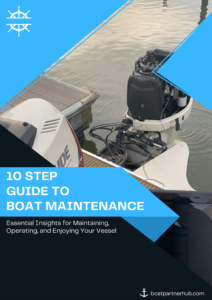Blog
Safety Guidelines for Kids: Ensuring a Fun and Secure Boating Experience

Safety Guidelines for Kids: Ensuring a Fun and Secure Boating Experience – Expert Tips for Boating with Children
Boating with kids is a wonderful way to create lasting family memories, but it’s essential to prioritize safety on the water. As a responsible boater and parent, it’s crucial to educate yourself and your children about boating safety guidelines. This comprehensive guide provides valuable tips to ensure a fun and secure boating experience for kids of all ages. From wearing life jackets to sun protection and emergency preparedness, understanding and implementing these safety guidelines will give you peace of mind while creating cherished moments on the water.
1. Always Wear a Life Jacket
Life jackets are the most critical safety equipment for children on boats. Regardless of their swimming abilities, all kids should wear properly fitting U.S. Coast Guard-approved life jackets at all times when on the boat or near the water. Infants should wear specially designed infant life jackets with head support, and older children should have appropriately sized life jackets based on their weight and chest size range.
2. Practice Safe Boarding and Disembarking
Teach kids the proper way to get on and off the boat safely. Emphasize the need to keep hands and feet inside the boat and to use handrails when stepping in or out. Kids should never jump off the boat, dock, or swim platform.
3. Supervise Kids Near the Water
Assign a responsible adult to watch kids closely when they are near the water, whether on the boat, dock, or shore. Drowning incidents can happen quickly and silently, so constant supervision is essential.
4. Educate Kids about Boat Rules
Before setting out on a boating adventure, explain basic boat rules to kids. Teach them the importance of staying seated while the boat is moving and the need to keep their hands away from moving parts. Educate them on respecting the boat and its equipment to prevent accidents.
5. Sun Safety
Children are more susceptible to the harmful effects of the sun, so ensure kids are adequately protected. Encourage them to wear wide-brimmed hats, UV-blocking sunglasses, and sunscreen with a high SPF. Seek shade during peak sun hours and have them wear protective clothing to minimize sun exposure.
6. Be Prepared for Emergencies
Teach kids how to use a marine radio or cellphone in case of emergencies. Ensure they know where life-saving equipment, such as life jackets and life rings, are stored on the boat. Have a well-stocked first aid kit on board and instruct kids on basic first aid practices.
7. Educate Kids about Wildlife
Boating often provides opportunities to encounter wildlife and marine animals. Discuss the importance of respecting wildlife from a distance and not feeding or approaching them. Teach them the significance of preserving the natural environment and disposing of trash responsibly.
8. Stay Hydrated
Dehydration can occur quickly, especially on hot days spent on the water. Remind kids to drink plenty of water throughout the day. Provide refreshing drinks and snacks to keep them hydrated and energized.
FAQs (Frequently Asked Questions)
Q1: Can babies go boating, and do they need life jackets?
A: Yes, babies can go boating, but they must wear a properly fitting infant life jacket at all times. Infant life jackets have extra head support and flotation for their small bodies.
Q2: How do I find the right size life jacket for my child?
A: Look for U.S. Coast Guard-approved life jackets labeled with your child’s weight and chest size range. Test the fit by lifting the child’s arms; the life jacket should not ride up above their ears.
Q3: Are there specific age limits for boating with kids?
A: There are no specific age limits for boating with kids, but it’s essential to ensure they are mature enough to follow safety instructions and wear life jackets.
Q4: Should kids wear life jackets even if they know how to swim?
A: Yes, life jackets should be worn regardless of swimming ability. In an emergency, a life jacket can save their life, even if they are confident swimmers.
Q5: What should I do if my child is afraid of being on a boat?
A: Be patient and understanding if your child is fearful of boating. Start with short trips and gradually increase the duration as they become more comfortable. Create a positive and reassuring environment to build their confidence.
Conclusion
Boating with kids can be an enriching and enjoyable experience, but it’s essential to prioritize their safety. By following these comprehensive safety guidelines, you can ensure a secure and fun boating adventure for the entire family. Always have life jackets on hand, educate kids about boat rules and safety practices, and supervise them near the water. Sun protection, emergency preparedness, and respecting wildlife are equally important aspects to consider. With the right safety measures in place, you can create wonderful memories on the water while keeping your children safe and happy.


